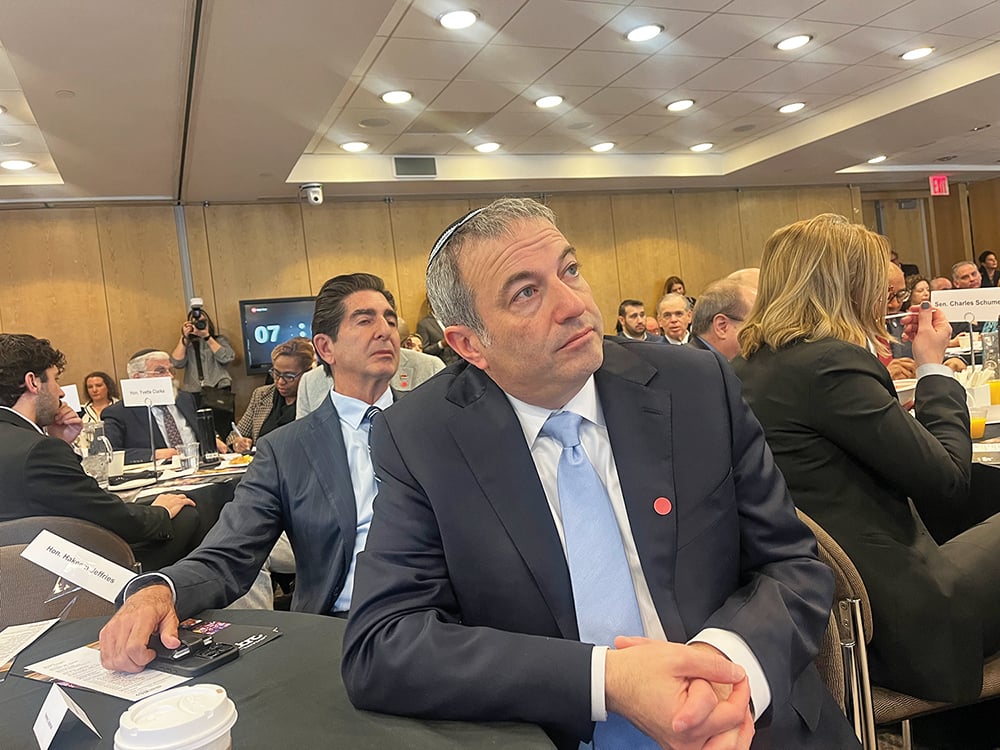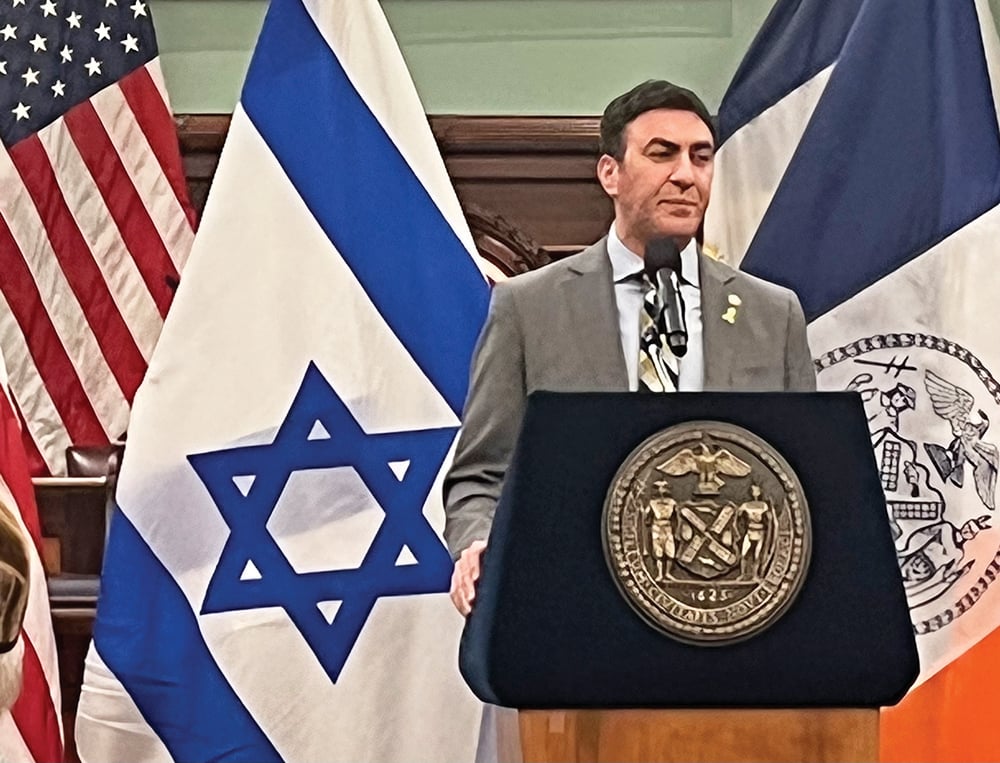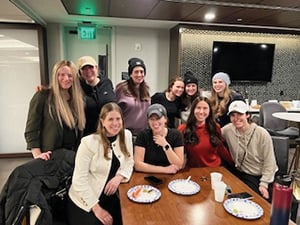I weep with happiness as the hostages return home. But how can this be the price of their liberation?
Ashraf Zughayer, the Hamas leader who arranged for the killing of my cousin and attempted to have me killed, got out of prison January 25 as part of the ceasefire agreement between Israel and Hamas. He had served 22 years of what were supposed to be six life sentences—one for each person whose murder he orchestrated.
Yoni Jesner, my cousin and closest friend, was 19 years old when a Hamas suicide bomber whom Zughayer dispatched murdered him and five others on a bus in Tel Aviv in 2002. More than two decades later, emotional scarring from that bombing—which I survived by the slightest margin—is still etched into my soul. So are physical scars on my torso.
Time, it turns out, does not heal all wounds. Perhaps it might when those wounds are given an uninterrupted chance to heal. But that is impossible in Israel, where the war against us never ends and where the freeing of the man responsible for that attack cuts at the scar tissue and forces me and every other Israeli into an impossible corner. We are being asked to weigh our profound grief and our concerns about terrorists reoffending against our bond with the hostages whom we want back home with every fiber of our being. This is an unsolvable conundrum, especially for those who have lost loved ones to terror.
Zughayer masterminded the attack that killed Yoni, but he is now home, having been welcomed back to his East Jerusalem neighborhood as a hero, draped in Hamas flags atop a white Toyota pickup truck just like the ones his Hamas comrades rode as they stormed southern Israel on October 7, 2023.
In 2002 Zughayer exploited the fact that, as a resident of East Jerusalem, he had an Israeli ID to drive the suicide bomber through checkpoints to Tel Aviv. There, he dropped the bomber off at the crowded Allenby Street bus stop where our bus would unwittingly pick him up minutes later.
The moments after the explosion are still vivid in my mind—the shattered glass, the heap of skinless bodies at the front of the bus, the few silent seconds as an aura of death hung in the air before it gave way to piercing sirens and screams.
Most of all I remember Yoni, in life so strong and brave, on the floor next to me with a mortal head wound. The first paramedic to treat us on the sidewalk cried out to Yoni, “Al tamut, al tamut!” (“Don’t die, don’t die!”)
Yoni was bound for medical school in London following our time in yeshiva. He was gifted intellectually, but given to fits of slapstick comedy. His silliness was a great leveler and he used it, with his disarming smile, to ensure that those on the periphery of any social environment felt included. A natural leader in his home community of Glasgow, Scotland, he was a role model to countless young people and to his legion of cousins and friends like me. Though in his life he was deprived of the opportunity to save lives as a doctor, in death he was not, his donated organs saving three people: two Jewish men from Tel Aviv and an 8-year-old Muslim girl from East Jerusalem, Yasmin Abu Ramilah, who received one of Yoni’s kidneys after years on dialysis.
It is still hard to comprehend that Yoni is gone from our family. He is forever 19, while our lives have carried on. I felt his absence at my wedding and at the births of my four children. I’m honored to have named a son after him, just as Yoni’s three older siblings have each done. This past summer as we celebrated my son’s bar mitzvah in Jerusalem, in a cemetery on the other side of the holy city Yoni lay at rest, still a teen.
Zughayer’s premature release is not my first experience with this unique torment.
In 2005, a U.S. federal court sentenced Mohammed Ali Hassan al-Moayad, the Yemenite sheikh who allegedly financed the attack that killed Yoni, to 75 years for conspiring to raise money for al-Qaeda and Hamas. Most notably, he was accused of sending $20 million to Osama bin Laden in Afghanistan prior to 9/11. He was sent to America’s highest security facility: the federal supermax prison in Florence, Colorado.
Eye contact with al-Moayad in the Southern District of New York courtroom was jarring. Knowing that this man—previously the chief imam at Sana’a’s central mosque—had been involved in the murder of so many Americans and Israelis was chilling. It felt good to bring a small measure of justice on behalf of the victims, though it would be fleeting. Three years later, after an appeals court overturned al-Moayad’s conviction, the U.S. government agreed to a plea bargain that resulted in his release from prison and his deportation. He returned home to a hero’s welcome from thousands of supporters, including the president of Yemen himself, in scenes eerily similar to the triumphant return of Zughayer to East Jerusalem last weekend.
These moments—of justice undermined and pain reignited—are devastating for victims of terror.
It isn’t simply releasing our enemies that vexes us. Israeli society—and Jews around the world—find ourselves in an impossible ethical quagmire. We cannot leave our hostages in Gaza. We are morally and mystically connected to their well-being and dare not return to normal daily existence until they are free. We need to use every lever at our disposal—financial, diplomatic, military, and spiritual—to bring them home.
At the same time, releasing terrorists has been proven to lead to more terror. Radicalized Palestinian youth have been reared on a curriculum of Jew-hatred. Their time in Israeli jail does not heal them of it. They know they are lionized in the streets of Nablus, Jenin, and Khan Yunis, and they are only too eager to burnish their legacies further. A deal Israel struck in 2011 saw a single captured soldier, Gilad Shalit, freed in return for 1,027 Palestinian prisoners, of whom a staggering 280 were serving life sentences for terrorism. Many have reoffended—most prominently, Yahya Sinwar, who immediately upon his release took charge of the Gaza Strip’s terror network and subsequently masterminded the October 7 attack.
Strategically, releasing terrorists is a reckless, shortsighted move. It is likely to lead to the death of more Jews in the future than if those same terrorists were kept imprisoned. And yet the trade for the definite safety of Jews who are currently in captivity and whose lives are presently in mortal danger takes precedence. We must move mountains to bring them home, even as we fear that those very mountains may bury our loved ones in the future. The moral dilemma is excruciating.
There is no simple answer. We dare not leave the hostages in Gaza. We dare not free the terrorists, and endanger our people for years to come: truly, a deal with the devil. We should not be having to make this decision in the first place: given the sea of enemies that surrounds Israel, its security apparatus simply cannot afford to have any blind spots.
But woven into the anguish is a fundamental truth that will ultimately be our saving grace: We have an irrepressible bond with each and every Jew that transcends logic and reason. The hostages being held right now in Gaza are my family, and I will risk life and limb to bring them home.
This unspoken national pact—that we will not leave anyone behind despite the extraordinary risks—raises the threshold of physical danger in the name of collective healing. There is a sacred irony to this, but it’s the price of a homeland in a hostile world, and our commitment to this ideal gives our nation its spine. It is precisely the intimate kinship we feel with all Jews no matter their background or ideology—and our willingness to act on it—that will allow Israel to emerge from this terror and stand strong once again.
Rabbi Gideon Black serves as the CEO of Tri-State NCSY and lives in Englewood.











